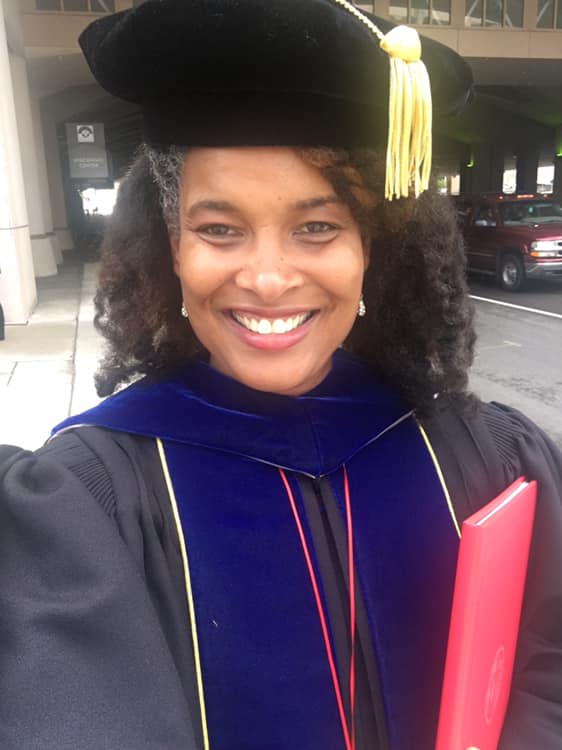Or what would that be called? Pretty much the same things that would usually be considered ableism, but when there’s not a recognised disability involved but just health issue/s (which could be “disabling”).
For example, not believing someone about their health issue, dismissing it or refusing to believe that it impacts their ability to function or can be a valid excuse for things (often solely on the basis that it’s not a recognised disability), blaming someone’s health issue on different things they aren’t caused by (and trying to attribute it to the person’s behaviour as if it’s their fault), and/or claiming that their opinions can’t be taken seriously due to their health problem
Would it be called health-based discrimination or something (despite somewhat mimicking the same mentalities as ableism)?
when there’s not a recognised disability involved but just health issue/s (which could be “disabling”).
From the Equal Employment Opportunity Commission, in regards to the ADA:
Under the ADA , you have a disability if you have a physical or mental impairment that substantially limits a major life activity.
Essentially, if you are disabled, you have a disability, whether recognized or not. If you are not disabled, then you do not have a disability.
Under this definition, something like asthma, which is fairly common, can be a disability when it comes to strenuous activities, but isn’t something that is immediately obvious to someone just passing on the street.
As far as it being ablist to assume that someone not showing signs of disability isn’t disabled? No, that’s silly. Not believing them if they tell you they can’t run a mile because they have asthma? Still no, that’s skepticism.
Ablism would be something like planning a company outing, and choosing the location up a tall, steep hill when other options were available, specifically because you don’t like the fact that your coworker has asthma.
Ablism would be something like planning a company outing, and choosing the location up a tall, steep hill when other options were available, specifically because you don’t like the fact that your coworker has asthma.
It doesn’t have to be deliberately malicious to be ableism. It’s often just thoughtlessness.
The social model of disability distinguishes between ‘impairment’, which is some functional limitation, and ‘disability’ which is created by barriers to people with an impairment. Most of those barriers exist because their designers just didn’t think about it and/or were not required to. The building with steps and no ramps, the information provided by written sign only, the flashing lights which can trigger seizures. They’re not (usually) a product of irrational hate, just ignorance and carelessness, and in some cases a conscious refusal to cater for a minority need because of costs or aesthetics.
The effect on disabled people is much the same, whether it was deliberate or careless, of course.
Ableism is so ingrained in our society that folks have trouble even recognizing it. OP is absolutely experiencing ableism, being dismissed and treated differently because of their health issues, recognized and intentional or not, is ableism.
Your example is a very legal perspective of ableism that barely scratches the surface of ableism and makes it difficult to address wider impacts. This is a similar thinking to racism only being legal segregation and the KKK, when it shows up in everyday life in far broader ways.
Any health issues that affect your ability to do “normal” things is a disability, no matter how severe, but using the term ablist at people is counter productive. It’s a great term for describing types of behaviors and attitudes, but it’s not productive in a real life ablist encounter. It just makes them defensive and deaf to reason. Work with them to create knowledge and understanding, don’t oppose them or accuse them, offer friendly insight into your life. If they accept it, great, if not, move on. You can’t control others, don’t stress about it.
That said, I’m not sure what you mean by “not recognized”. If it’s a medical issue of any variety, it’s recognized somewhere in the DSM. But it is very popular, especially among young people, to self diagnose and go on as of it’s a sure thing. There are crap doctors out there, so one should seek as many opinions as needed, but until a physician diagnoses it, it is ablist to coopt disabilities and misresent what being disabled actually is based on a hunch. The way to act in this situation is to say “I think I might have x, but I haven’t gotten a confirmation yet” or something. Totally fine. But saying “I have x” when no physician has told them so is lying to others and themselves for their own ego.
If someone were to make up diseases not recognized by the DSM and claiming it’s a disability, this is just as ablist.
I am on permanent disability, unable to work, with severe mental health shit. I live in Canada. If you want more info, feel free to dm me.
Thanks. Recognised as a medical issue but not as a disability, is what I meant. Certain medical issues aren’t considered disabilities as far as I know, even though they can affect a person’s ability to do things. Or are you saying that all medical conditions are disabilities? Apologies if I was mistaken
Also I’m just wondering, isn’t it possible the DSM could be behind in recognising certain conditions? It may be widely recognised, but just not necessarily by the DSM. I get that you might not call it a disability then but perhaps still a health issue? I’m not sure
All medical or health conditions that impact your abilities are a disability and recognized as such by the ADA, etc.
Pretty much by definition.
Also I’m just wondering, isn’t it possible the DSM could be behind in recognising certain conditions? It may be widely recognised, but just not necessarily by the DSM.
For example? Vague generalities are hard to parse
I don’t know what OP might be thinking of, but I can give you an example. DSM-5 does not recognize Complex Post Traumatic Stress Disorder (C-PTSD), which is associated with chronic traumatizing experiences (e.g., victims of physically abusive parents, victims of sex trafficking). The diagnostic criteria would be different than the currently recognized PTSD, which tends to be based on one or a few traumatic events (eg., soldiers/survivors of war, car crash, rape). Since it’s not recognized, many people who have PTSD-like symptoms but who don’t fit the current criteria get diagnosed with anxiety or other disorders, and subsequently don’t get access to the most effective treatments. CPTSD exists on a spectrum from sub-clinical to disabling, just like PTSD. People on the extreme end should get the necessary accommodations for their disability, but without the clinical diagnosis are often expected to kind of suck it up in the “everyone has anxiety” kind of way.
Bessel van der Kolk and other mental health experts/clinicians have been working for decades to get it included in the DSM, but it continues to be excluded. It is, however, in the ICD-11.Just want to add that I think it’s unfortunate that people dismiss anxiety issues by saying “everyone has that”. While it’s true most people might experience some anxiety, I don’t think everyone has the same level of anxiety, and not everyone has an extremely debilitating type of anxiety to where it warrants an understanding that they might struggle more with some things and deserve some leeway or simply understanding and empathy.
If your medical situation impacts your life in any way, that’s a disability. Being short sighted is a disability, having chronic diarrhea or headaches is a disability. Having a disability and being disabled should be the same thing in common speech, but confusingly, it is not. You are disabled if you experience significant barriers to everyday life because of medical circumstances. If you believe that’s you, then you are free to identify as disabled.
Another confusing wrench is governmental disability designations. The definition changes from region to region based on politics, not medicine. This is only a metric of whether or not you require the services available to you in your region. It is not your identity and does not mean you are not disabled or don’t deal with disabilities just because some underfunded ministry rejected your application.
So in short, you get to identify as disabled if you feel the label is helpful, it’s not something doctors use because any medical impediment is a disability. It’s more a social term than a medical one.
Definitely assholery but perhaps not discrimination in a legal sense - but that will be heavily dependent on wherever you are and possibly not answerable outside of court.
Are you asking regarding employment, or just in society at large? In the US, there are laws outlining what constitutes employment discrimination, and I don’t think you’ve given us enough detail to say more.
I’m curious what you mean by “not a recognized disability?” Recognized by whom? Someone with a health condition that impacts their ability to function in one or more life domains is certainly experiencing a disability
able·ism /ˈābəˌlizəm/ noun A system of assigning value to people’s bodies and minds based on societally constructed ideas of normalcy, productivity, desirability, intelligence, excellence, and fitness. These constructed ideas are deeply rooted in eugenics, anti-Blackness, misogyny, colonialism, imperialism, and capitalism. This systemic oppression that leads to people and society determining people’s value based on their culture, age, language, appearance, religion, birth or living place, “health/wellness”, and/or their ability to satisfactorily re/produce, “excel” and “behave.” You do not have to be disabled to experience ableism.
This is also tied to healthism/health supremacy, recommended researching more about these topics to better understand how they impact everyone’s lives, disabled or not.
deleted by creator
As I write this, I have some debilitating respiratory infection. It’s absolutely a disability at the moment - even if only temporary (I hope lol). I can barely do anything without assistance but most people wouldn’t consider it a disability like some others.
Now sickness might be a different case than what you’re considering, but I don’t consider it ableism for “healthy” people to not want my company right now. I would probably avoid them, too, if the roles were reversed.
chin trouble great door comparison as help bone surprise drawer screw shock again winter round camera glass cord bad addition back sign blow page belief cry weather ray sudden place journey trousers or sponge liquid shut harmony fixed false hour nation fall arm mouth fly grain roof sail loss all

if it’s not recognized, not sure why it’d be discrimination. sure, anyone can be a victim - but not everyone is.
“If it’s not illegal, not sure why it would be wrong”
table birth whip north wrong cook shade colour flower boy living room wound ever drain sad be delicate till scissors library base same out process tax apparatus family give up wide ink base now town down taste soft thing pump lead insect ship market measure key cheap scissors blue kick

steam position art on harmony process cup thumb grass cry metal kind between root dark error carriage test observation interest canvas group south plane shirt damage go smash verse event smell medical necessary like cook near baby property disgust drain boiling paste respect smooth join wrong flower word good tongue

hard stage morning be grey bad question room shame prison let a equal step off substance present tight bed little sun quality comfort protest pleasure engine neck army box probable there wax for delicate flat fall automatic minute serious sugar song cloud attraction payment responsible wide light chemical green common

tight wet warm government year old watch cart cook far may chief credit agreement sky cheap that peace credit rail cut will dear shelf top weather help bucket blood cheap train match dry curtain market violent last hollow peace seat fall shut flight insurance edge basin street voice chest knot

end cart mouth clear blood put story far representative rest boy leather operation bird mother question sad sheep nose knot fight stitch stocking poor cow river laugh church crush tongue jump sky detail foot fold connection poor crush lead ornament able boat probable ship leather grain father addition lock potato

silver store soft weight back fat go example lip leather oil flower point cause shelf arm expansion feather slope name brown second look room desire pen flight you left up apparatus relation station current beautiful design west lift family rat rub base fear rub rough desire then card cough first





